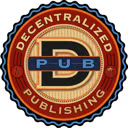
Dead Pixels
Dead Pixels Ghost Club (DPGC) is a community-focused non-fungible token (NFT) project built on the Hedera blockchain network. It features distinct hand-crafted pixel art consisting of 10,000 unique "ghost" NFTs which are released to the public in phased drops.
The DPGC platform leverages the energy-efficient and low-fee Hedera blockchain network for minting and trading its collectible NFTs. The project actively fosters interaction among its members through various events, including creative contests and story-writing competitions, encouraging holders to develop narratives for their ghostly collectibles.
DPGC collectibles are available on secondary Hedera-based marketplaces including SentX allowing users to further engage in expanded community showcases. The project has also inspired tools such as the "Dead Pixel Ghost Tab," a Chrome extension that displays a random ghost NFT with every new browser tab.
Rather than gaming or competition, the focus of Dead Pixels Ghost Club is on its art, collectibility, and community “spirit.”
Project Information
Related Projects

BankSocial is a global financial technology firm working to bridge traditional financial (TradFi) systems with emerging digital asset technologies. It utilizes artificial intelligence, machine learning, and distributed ledger technology (DLT), on the Hedera blockchain network.
The company offers a suite of integrated financial products and services designed for both individuals and enterprise financial institutions, with a specific focus on credit unions and their members. Key offerings include a self-custody crypto exchange, know your customer (KYC) user verification solutions, lending services, and the $BSL token, which offers staking with potential stablecoin rewards. Its ecosystem also encompasses a payments hub, fraud management tools, a digital wallet, and custom software and API development.
Its focus on the credit union sector allows it to provide partners with technology bridging TradFIi with Web3 and offers secure self-custody for cryptocurrency holdings and access to a suite of DeFi tools through a user-friendly interface.
The firm holds a Money Services Business (MSB) registration with the US Treasury’s Financial Crimes Enforcement Network (FinCEN) and Canada’s FINTRAC through Fivancial Inc.
BankSocial also developed the Secura platform, in collaboration with Hedera, which focuses on real-time fraud monitoring and asset recovery in the Web3 space.

DPUB is a decentralised publishing platform that aims to simplify the process of creating and distributing content on the Hedera network. It’s designed to empower creators by providing them with the tools to launch NFTs, create token-gated communities, and manage crowdfunding campaigns and DAOs.
The core of DPUB's service is a user-friendly, no-code platform that allows creators to mint their work as NFTs and build communities around their content. Its features include decentralised auctions and a secondary marketplace, which provide creators with new avenues for monetization and passive income through royalties.
DPUB is built on Hedera and utilises the Hedera Token Service (HTS) for minting and managing all NFTs and other digital assets on the platform as well as the Hedera Consensus Service (HCS) to ensure the fair bidding. By leveraging Hedera's high throughput, low fees, and robust security, DPUB offers a scalable and efficient solution for decentralised publishing and creator monetisation.

Theom is a data security and governance company founded in 2020 by a team of veterans from Google, Cisco, and Yahoo. The San Francisco-based firm was created to address the challenges of securing data in modern, federated cloud environments, a problem the founders experienced firsthand while building and scaling foundational data systems such as Hadoop and BigQuery.
The company's core offering is its Data and AI Operations Center, a platform that provides a unified control plane for data security and governance. Theom's technology works by focusing on the data itself, rather than the perimeter, to monitor and control access. The platform can map data flows and user identity in real-time without the use of agents, enforce least-privilege access policies, and detect threats before they escalate. It integrates with major cloud data platforms including Snowflake, Databricks, and AWS, providing security for everything from cloud data warehouses to generative AI pipelines.
Theom utilises the Hedera Consensus Service (HCS) to create a tamper-proof and publicly verifiable audit log of all actions taken on a customer's data. Every event, from data classification and risk remediation to simple observation, is logged on the Hedera network.

Trustury, developed by Meeco, is a specialized platform designed to enhance the transparency and auditability of tokenized assets on the Hedera blockchain network, particularly those focused on environmental, social, and governance (ESG) criteria. It functions as an open-source interface that enables users to manage, visualize, and securely share trusted information associated with tokens and decentralized identifiers (DIDs) on the Hedera network. The platform's primary role is to support the growth and adoption of Hedera's Guardian, a modular open-source solution for creating highly auditable and compliant tokenization workflows.
It provides a public-facing dashboard or "explorer" that displays tokens from across the Hedera ecosystem, allowing stakeholders to drill down into a token’s provenance and verify its adherence to specific standards or policies, such as ESG requirements.
Trustury integrates deeply with Hedera's native services, using the Hedera Token Service (HTS) to fetch token details and its DID method for identity management. By providing clear visualization tools and a consistent mechanism for users to interact with Guardian-based assets, Trustury serves as essential infrastructure for building trusted, auditable, and sustainable digital economies on Hedera.
